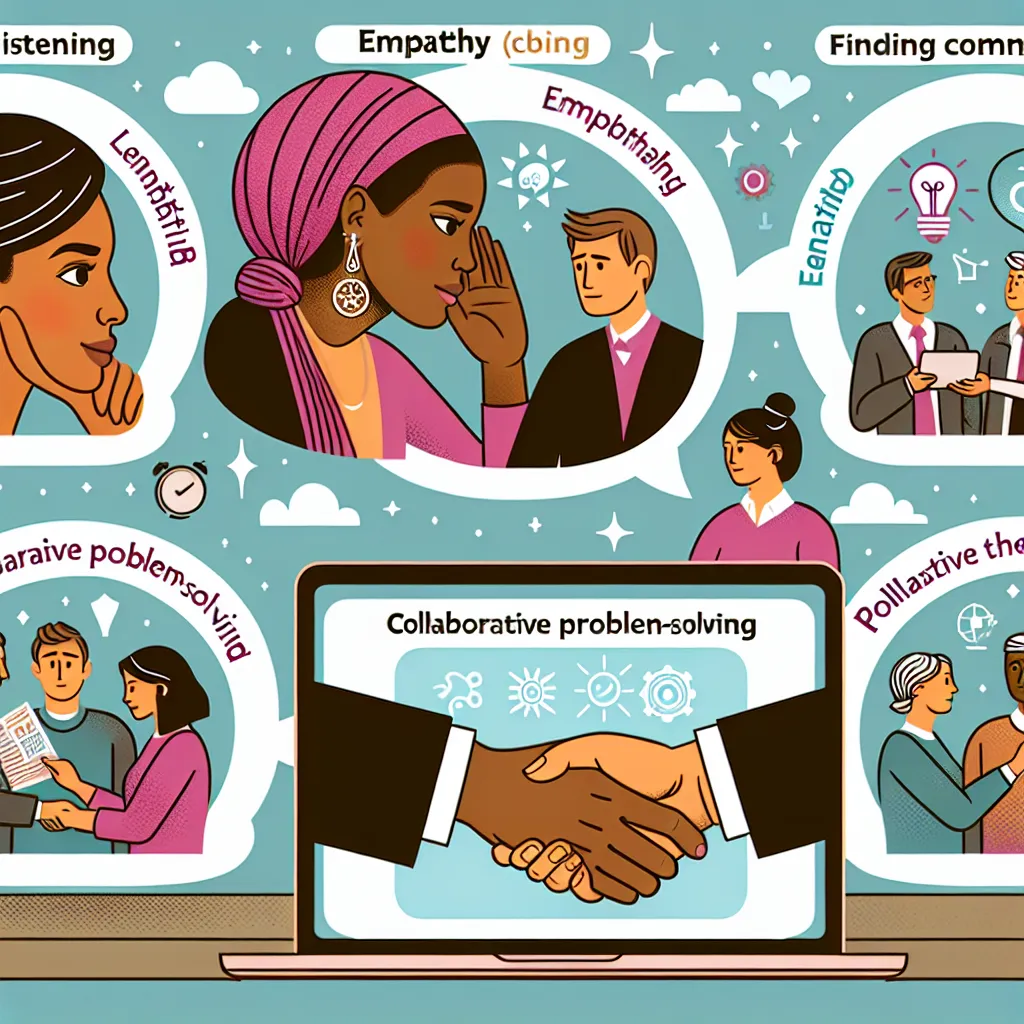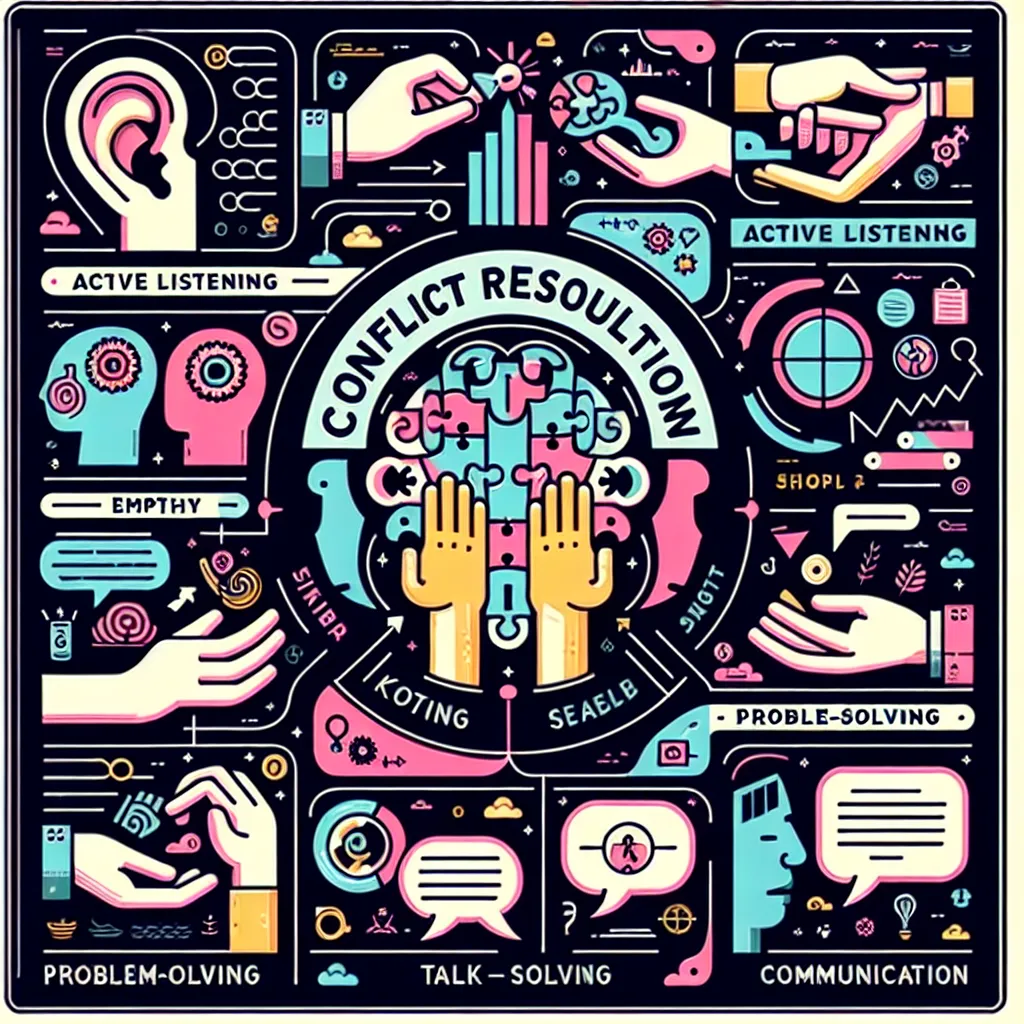In job interviews, you’ll often be asked about your ability to handle workplace conflicts. One common question is to describe a time when you disagreed with a colleague. This question helps interviewers assess your communication skills, problem-solving abilities, and how you handle professional relationships. Let’s explore how to effectively discuss such a situation in an interview.
Understanding the Question’s Purpose
When interviewers ask about disagreements with colleagues, they’re looking to evaluate several key aspects of your professional conduct:
- Your communication skills
- Your ability to handle conflicts professionally
- Your problem-solving approach
- Your teamwork and collaboration skills
- Your emotional intelligence
What Interviewers Are Assessing
Interviewers will be paying close attention to:
- How you frame the disagreement
- The steps you took to resolve the issue
- The outcome of the situation
- What you learned from the experience
 Professionals discussing disagreement
Professionals discussing disagreement
Structuring Your Answer
To effectively answer this question, use the STAR method:
- Situation: Briefly describe the context of the disagreement.
- Task: Explain what needed to be accomplished despite the disagreement.
- Action: Detail the steps you took to address and resolve the disagreement.
- Result: Share the outcome and what you learned from the experience.
Example Answer
Here’s an example of how you might structure your response:
“In my previous role as a marketing coordinator, I disagreed with a colleague about the approach for our new product launch campaign.
Situation: My colleague wanted to focus entirely on social media marketing, while I believed we needed a more diverse approach including traditional media.
Task: We needed to create a marketing plan that would effectively reach our target audience and maximize our budget.
Action: I scheduled a meeting with my colleague to discuss our different viewpoints. I came prepared with data showing the demographics of our target audience and their media consumption habits. I listened to my colleague’s perspective and acknowledged the strengths of their social media-focused approach. We then brainstormed together to find a middle ground.
Result: We ended up creating a hybrid campaign that primarily used social media but also incorporated targeted print ads in industry publications. The campaign was a success, reaching a wider audience than we initially anticipated and resulting in a 20% increase in product inquiries. This experience taught me the value of open communication, data-driven decision making, and finding compromise in professional disagreements.”
Common Mistakes to Avoid
When discussing a disagreement with a colleague, be careful to avoid these pitfalls:
- Speaking negatively about your colleague
- Portraying yourself as completely right and the other person as wrong
- Indicating that you’re frequently involved in conflicts
- Failing to show how you actively worked to resolve the disagreement
- Not demonstrating what you learned from the experience
 Conflict resolution in workplace
Conflict resolution in workplace
Tips for Answering Effectively
To make your answer more impactful:
- Choose a relevant and professional disagreement
- Focus on the process of resolution rather than the disagreement itself
- Highlight your communication and problem-solving skills
- Emphasize the positive outcome and lessons learned
- Keep your answer concise and to the point
Learn more about how to discuss your experience in managing conflicts
Follow-up Questions and How to Answer Them
Interviewers might ask follow-up questions to delve deeper into your conflict resolution skills. Here are some potential questions and how to approach them:
-
How do you typically handle disagreements in the workplace?
Answer: “I believe in addressing disagreements promptly and professionally. I focus on active listening, understanding the other person’s perspective, and working collaboratively to find a solution that benefits the team and the company.” -
What if you can’t reach an agreement with your colleague?
Answer: “If we can’t reach an agreement, I would suggest involving a supervisor or mediator to help us find a resolution. The goal is always to find a solution that’s in the best interest of the project and the company.” -
How do you ensure that disagreements don’t affect your working relationship?
Answer: “I make a conscious effort to separate the issue from the person. After resolving a disagreement, I ensure that I maintain a professional and friendly demeanor, focusing on our shared goals and the tasks at hand.” -
Can you give an example of a time when you changed your mind after a disagreement?
Answer: “Yes, in a previous project, a colleague suggested a different approach to our data analysis. Initially, I disagreed, but after they presented compelling evidence, I realized their method was more efficient. This experience reinforced the importance of being open-minded and willing to learn from others.” -
How do you handle disagreements with superiors?
Answer: “When disagreeing with a superior, I approach the situation with respect and professionalism. I present my viewpoint with supporting data or examples, listen to their perspective, and focus on finding a solution that aligns with the company’s goals.”
Discover tips for speaking confidently in English interviews
Conclusion
Discussing a time when you disagreed with a colleague is an opportunity to showcase your interpersonal skills, problem-solving abilities, and professionalism. By preparing a thoughtful response using the STAR method, focusing on the resolution process, and highlighting the positive outcome, you can demonstrate your value as a team player and effective communicator. Remember, the key is to show that you can handle disagreements constructively and learn from these experiences to improve workplace relationships and outcomes.
Learn how to talk about your interpersonal skills in an interview




